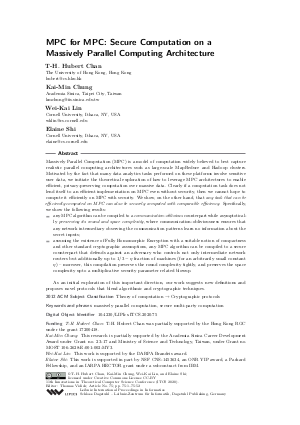LIPIcs.ITCS.2020.75.pdf
- Filesize: 0.83 MB
- 52 pages

 Creative Commons Attribution 3.0 Unported license
Creative Commons Attribution 3.0 Unported license




















































































Feedback for Dagstuhl Publishing